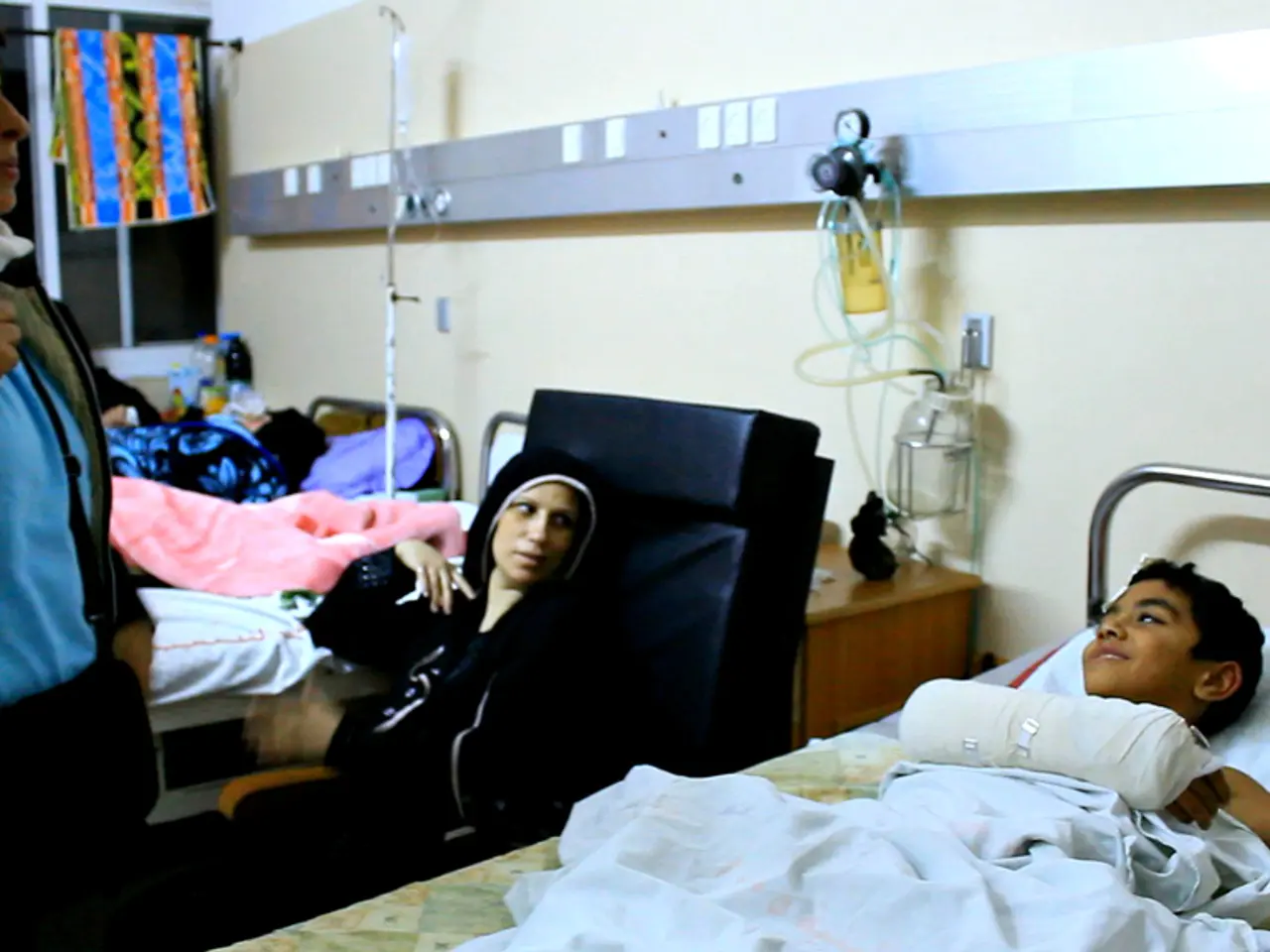Health Care Institutions Suffer under Trump's 'Imposing Beautiful Legislation'
The "One Big Beautiful Bill Act" (OBBB), a budget plan proposed during President Donald Trump’s administration and passed by the House in 2025, could have a severe impact on rural hospitals across the United States, primarily due to significant cuts in Medicaid funding.
The legislation proposes nearly $930 billion in Medicaid cuts, which are projected to disproportionately affect rural hospitals that already operate on very thin or negative financial margins.
Key impacts on rural hospitals include large Medicaid revenue losses, increased risk of closures and service reductions, reduced Medicaid coverage, and economic and community impact.
Rural hospitals stand to lose approximately 21 cents of every dollar they currently receive in Medicaid funding, with these cuts totaling nearly $70 billion for rural health facilities nationwide over the ten-year horizon of the bill.
Researchers and rural health advocates warn that these Medicaid cuts would accelerate the closure of more than 338 financially struggling rural hospitals, many of which are located in states like Kentucky, Louisiana, California, and Oklahoma.
Medicaid plays an outsized role in rural communities, covering a larger share of children, adults, and women of childbearing age than in urban areas. Loss of coverage will exacerbate financial stress on hospitals and limit access to care for rural populations.
Rural hospitals are often among the largest employers in their communities. Their closure or reduced services would not only worsen healthcare access but also deepen economic hardship in rural areas.
The bill also includes a 2% Medicare reimbursement cut, further straining rural hospital finances.
Experts, including Alan Morgan, CEO of the National Rural Health Association, state explicitly that Medicaid cuts under this bill "will result in rural hospital closures," highlighting the critical role Medicaid funding plays as a financial lifeline for these hospitals.
The bill is estimated to add $3-4 trillion to the national debt. The Republicans claim that Democrats are fear-mongering and that nobody is going to lose their Medicaid coverage. However, the Congressional Budget Office estimates 11.8 million people will lose Medicaid coverage between now and 2034, and a study predicts that 338 rural hospitals in the U.S. are at risk of closing due to the bill.
In addition, Sharp Healthcare, San Diego County's biggest provider, is laying off 315 employees and executives are taking pay cuts due to similar financial pressures, while UC San Diego Health is laying off 230 workers due to "mounting financial pressures" from federal impacts to health care, including poor reimbursement rates for Medicare and Medicaid.
People who lose their health insurance may seek care in emergency rooms due to lack of access to preventative care, further straining rural health systems.
Sen. Catherine Cortez Masto, a Democrat from Nevada, stated that these cuts will "devastate health care" in Nevada, while hospitals across New York state are expected to face financial hurdles due to Medicaid cuts.
In summary, the "One Big Beautiful Bill Act" threatens to destabilize rural healthcare infrastructure in the United States by slashing Medicaid funding, which in turn would lead to numerous rural hospital closures, loss of critical healthcare services, and increased barriers to care for vulnerable rural populations.
- The "One Big Beautiful Bill Act" is estimated to cut nearly $930 billion from Medicaid, a move that could lead to the closure of over 338 financially struggling rural hospitals across the United States.
- Rural hospitals, which often serve as the largest employers in their communities, face severe financial challenges due to the proposed Medicaid cuts, with a potential loss of approximately 21 cents of every dollar they currently receive.
- The bill also includes a 2% Medicare reimbursement cut, which further strains the finances of rural hospitals, leading to predictions of increased hospital closures and service reductions.
- Experts warn that the loss of Medicaid coverage will exacerbate the financial stress on rural hospitals and limit access to care for rural populations, especially in states like Kentucky, Louisiana, California, and Oklahoma.
- The bill's impacts extend beyond rural healthcare, as the loss of health insurance could force people to seek care in emergency rooms, further straining rural health systems. This, in turn, could worsen healthcare access and deepen economic hardship in rural areas.




